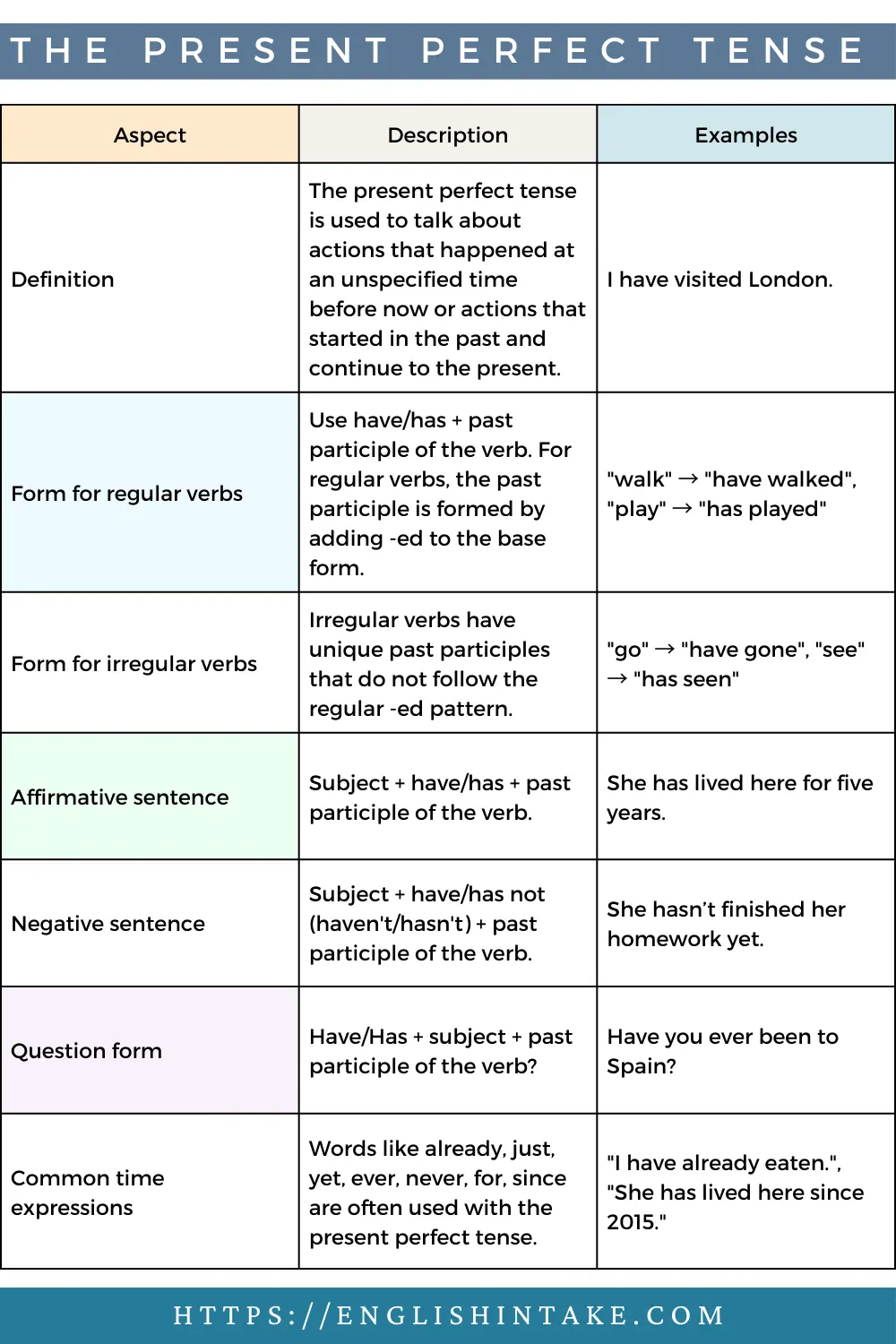Perfect tenses are essential in grammar as they help us to convey actions that have been completed in the past, present, or future. By understanding and using perfect tenses correctly, we can provide clarity and precision in our writing and communication.
Whether you are writing a formal essay, composing an email, or simply having a conversation, mastering perfect tenses can significantly enhance the effectiveness of your communication.
Perfect Tenses
Perfect tenses consist of three main forms: present perfect, past perfect, and future perfect. Each form is used to indicate a different timeframe for when an action was completed or will be completed.
The present perfect tense is used to describe actions that were completed at an unspecified time in the past or that have relevance to the present. For example, “I have finished my homework” indicates that the homework was completed at some point before now.
The past perfect tense, on the other hand, is used to describe actions that were completed before another past action. For instance, “She had already left when I arrived” conveys that the action of leaving occurred before the action of arriving.
Lastly, the future perfect tense is used to describe actions that will be completed by a specific point in the future. An example of this would be, “By next week, I will have completed my project,” indicating that the completion of the project will happen before the specified time next week.
By mastering the usage of perfect tenses, writers can provide a clear timeline of events and actions, making their writing more coherent and engaging for the reader.
In conclusion, perfect tenses play a crucial role in conveying completed actions in various timeframes. By understanding and utilizing present perfect, past perfect, and future perfect tenses, writers can enhance the clarity and effectiveness of their communication. So, next time you sit down to write, remember the power of perfect tenses in creating impactful and well-structured sentences.
